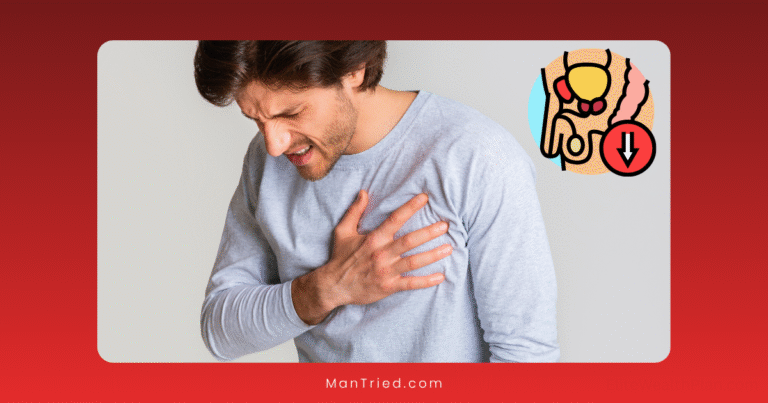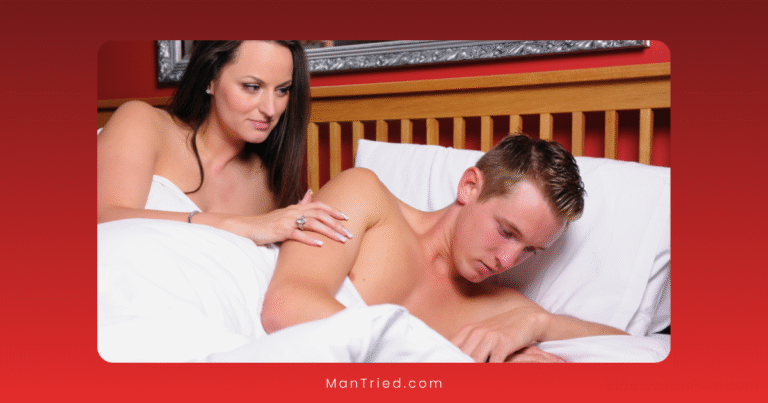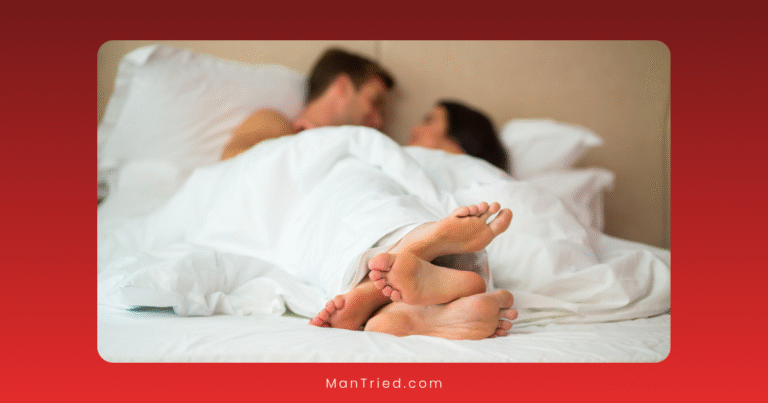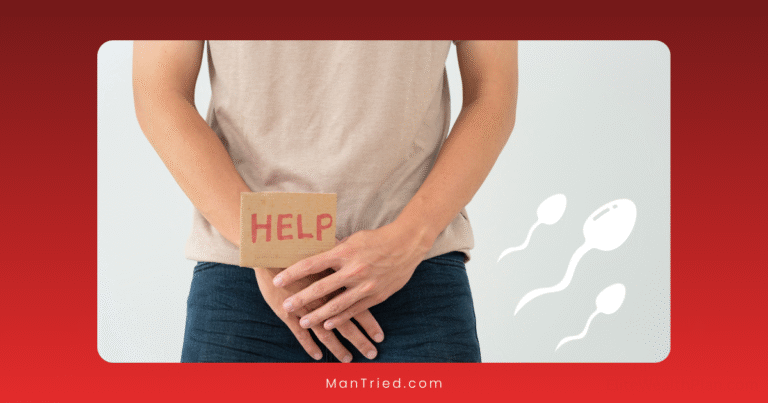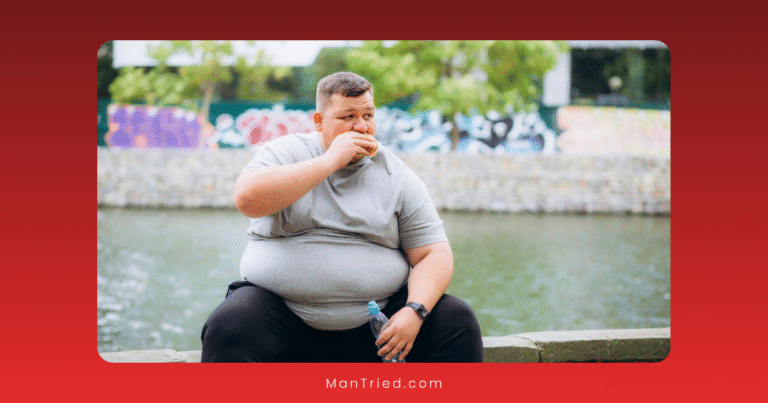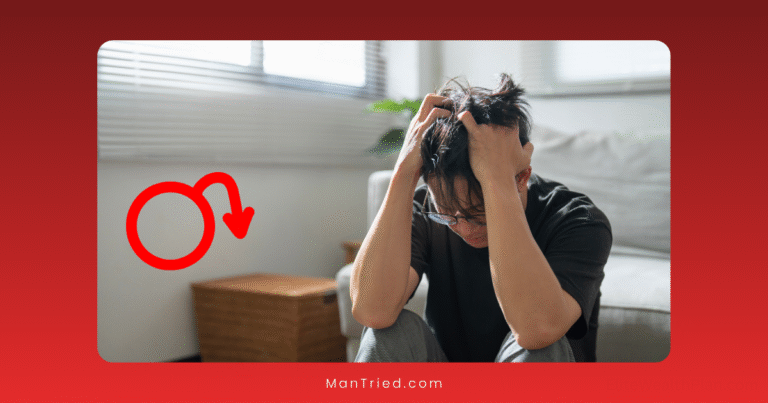PE and Performance Anxiety: Breaking the Cycle
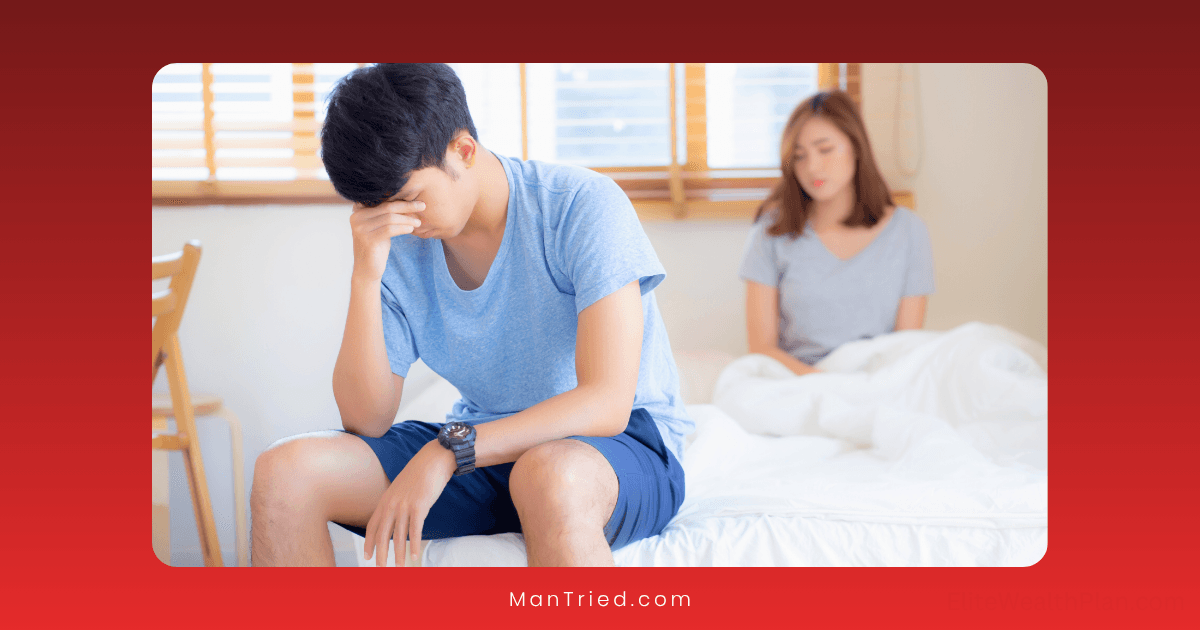
The bedroom should be a place of pleasure and connection, but for many men, it becomes an arena of anxiety and self-doubt. Premature ejaculation (PE) affects approximately 30% of men at some point in their lives, making it the most common male sexual dysfunction. When PE and performance anxiety combine, they create a frustrating cycle that can feel impossible to escape.
This comprehensive guide explores the relationship between premature ejaculation and performance anxiety, and provides practical strategies to break this debilitating cycle.
Understanding the PE-Anxiety Cycle
What is Premature Ejaculation?
According to the International Society for Sexual Medicine, premature ejaculation is defined as:
- Ejaculation that occurs within about one minute of penetration
- The inability to delay ejaculation during most sexual encounters
- Negative personal consequences, such as distress and frustration
What is Sexual Performance Anxiety?
Sexual performance anxiety is a psychological state characterized by:
- Excessive worry about sexual performance
- Fear of not satisfying a partner
- Concerns about body image or genital size
- Intrusive thoughts during sexual activity
- Physical symptoms like racing heart, sweating, or muscle tension
How They Feed Each Other
Dr. Ian Kerner, a renowned sex therapist and author of She Comes First, describes this relationship as “a perfect storm of sexual dysfunction.” Here’s how the cycle typically works:
- Initial PE episode: A man experiences premature ejaculation, which may be due to excitement, inexperience, or other factors
- Anxiety develops: Embarrassment and worry about it happening again create performance anxiety
- Hyperarousal state: This anxiety creates a state of physical and mental tension
- Focus shifts: Instead of being present during sex, attention fixates on controlling ejaculation
- Paradoxical effect: The more one tries to control ejaculation, the more difficult it becomes
- Repeated failures: Continued PE episodes reinforce anxiety
- Avoidance behaviors: Many men begin avoiding sexual encounters altogether
Research published in the Journal of Sexual Medicine found that men with PE are significantly more likely to experience anxiety disorders than those without PE, creating a bidirectional relationship where each condition worsens the other.
The Psychological Impact
The PE-anxiety cycle can have profound psychological effects:
Impact on Self-Esteem
A study from Luzato Medical Group found that:
- 68% of men with PE report feelings of inadequacy
- 44% experience significant blows to their self-confidence
- 38% question their masculinity or sexual identity
Relationship Strain
The impact extends beyond the individual:
- Partners may feel sexually unsatisfied
- Communication often breaks down around sexual issues
- Emotional intimacy can decrease as physical intimacy becomes stressful
- Resentment may build on both sides
Mental Health Consequences
If left unaddressed, the cycle can contribute to:
- Clinical depression (up to 33% of men with chronic PE develop depressive symptoms)
- Generalized anxiety disorder
- Social withdrawal
- Decreased quality of life
Breaking the Cycle: A Multi-Faceted Approach
Addressing both PE and performance anxiety requires a comprehensive strategy that tackles the physical, psychological, and relational aspects of the issue.
1. Mindfulness and Presence
Mindfulness—the practice of non-judgmental awareness of the present moment—has shown remarkable effectiveness in breaking the anxiety cycle.
Practical techniques:
- Body scan meditation: Spend 5-10 minutes daily becoming aware of physical sensations without judgment
- Sensate focus exercises: With a partner, take turns touching without the goal of sexual performance
- Mindful masturbation: Practice being aware of arousal levels without rushing toward orgasm
According to research published in Sexual and Relationship Therapy, an 8-week mindfulness program significantly reduced both PE and performance anxiety in 87% of participants.
2. Cognitive Behavioral Therapy (CBT)
CBT helps identify and challenge negative thought patterns that fuel anxiety.
Key CBT strategies:
- Thought records: Document anxious thoughts about sexual performance and challenge their validity
- Cognitive restructuring: Replace catastrophic thinking (“I’m a failure”) with realistic perspectives (“This is common and treatable”)
- Exposure therapy: Gradually face sexual situations with decreasing anxiety
The American Psychological Association reports that CBT is effective for 75-80% of people with anxiety disorders, including those related to sexual performance.
3. Physical Techniques
Several proven techniques can help gain better control over ejaculation:
- The stop-start technique: Pause sexual stimulation when approaching climax, then resume after arousal decreases
- The squeeze technique: Apply pressure to the penis just below the head when close to ejaculation
- Pelvic floor exercises: Strengthen the muscles that control ejaculation through regular Kegel exercises
Dr. Michael Perelman, Clinical Professor of Psychology in Psychiatry at Weill Cornell Medical College, recommends practicing these techniques during masturbation first, then gradually incorporating them into partnered sex.
4. Communication and Partner Involvement
Breaking the cycle requires open communication:
- Express vulnerabilities: Share concerns with your partner in a non-sexual setting
- Develop a plan together: Involve your partner in strategies to reduce anxiety
- Expand the definition of sex: Focus on pleasure beyond penetration
- Create a pressure-free environment: Agree that orgasm doesn’t have to be the goal of every encounter
Research from the Gottman Institute shows that couples who can discuss sexual concerns openly report 62% higher sexual satisfaction than those who avoid such conversations.
5. Lifestyle Modifications
Several lifestyle factors can significantly impact both PE and anxiety:
- Regular exercise: 40 minutes of moderate aerobic activity 4 times weekly reduces anxiety symptoms by up to 20%
- Stress management: Techniques like deep breathing, progressive muscle relaxation, and meditation
- Sleep hygiene: 7-9 hours of quality sleep improves hormonal balance and stress resilience
- Limiting alcohol and stimulants: While alcohol might temporarily reduce anxiety, it can worsen PE in the long run
6. Medical Interventions
When psychological and behavioral approaches aren’t sufficient, medical options can help break the cycle:
- SSRIs: Medications like sertraline and paroxetine can delay ejaculation and reduce anxiety
- Topical anesthetics: Lidocaine sprays or creams reduce penile sensitivity
- Combination therapy: Often most effective when medications are paired with psychological approaches
A meta-analysis published in the National Library of Medicine found that combining medical and psychological treatments resulted in better outcomes than either approach alone.
Success Stories: Breaking Free from the Cycle
Case Study: Michael’s Journey
Michael, 34, struggled with PE and performance anxiety for over a decade. His breakthrough came through a combination of:
- Weekly CBT sessions for three months
- Daily mindfulness practice
- Regular communication with his partner about sexual needs
- Short-term use of an SSRI to reduce anxiety
“The medication gave me breathing room to practice the psychological techniques without the overwhelming anxiety,” Michael reports. “After six months, I was able to discontinue the medication and maintain control through the skills I’d learned.”
Case Study: James and Partner
James and his partner attended couples therapy to address the relationship strain caused by PE and performance anxiety. Their approach included:
- Sensate focus exercises twice weekly
- Learning to communicate desires and boundaries
- Expanding their sexual repertoire beyond penetration
- Taking the focus off orgasm entirely for one month
“Removing the pressure transformed our intimate life,” James shares. “We discovered so many ways to please each other that ejaculation timing became just one small part of our sexual experience, not the defining factor.”
When to Seek Professional Help
Consider consulting a healthcare provider or sex therapist if:
- PE and anxiety have persisted for more than six months
- The issues are causing significant personal distress
- Relationship conflict has developed around sexual issues
- Self-help strategies haven’t produced improvement
- You suspect an underlying medical condition
Resources like the American Association of Sexuality Educators, Counselors and Therapists (AASECT) can help locate qualified professionals in your area.
The Path Forward
Breaking the cycle of PE and performance anxiety is possible with patience, persistence, and the right approach. Remember:
- The cycle developed over time and will take time to resolve
- Progress may not be linear, and setbacks are normal
- A multi-faceted approach typically works best
- Involving your partner in the process can strengthen your relationship
- Professional support can accelerate your progress
By addressing both the physical aspects of premature ejaculation and the psychological components of performance anxiety, you can reclaim your sexual confidence and satisfaction.
Have you found particular strategies helpful in managing performance anxiety? Share your experiences in the comments below.

